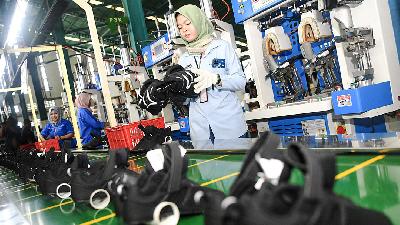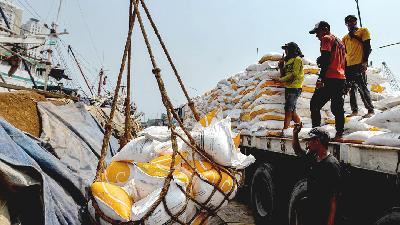A Domestic Recipe for the Middle East Conflicts
Monday, April 29, 2024
The Middle East conflicts will have a negative impact on the Indonesian economy. The solution is to improve the domestic economy.
arsip tempo : 174647648546.

THE escalating conflicts in the Middle East, especially after Iran responded to an Israeli attack, have the potential to upset regional and global economic stability. Indonesia, as a country with a fragile economy, will not escape the negative impacts of these regional conflicts.
One possible threat to the global economy is a sharp rise in oil prices. Conflicts in the Middle East, the largest oil-producing region with Iran as one of the key players, are highly likely to disrupt global oil supplies. Iran, with its position on one side of the strategic Strait of Hormuz, could also easily influence the transport of the world’s oil. Iran’s latest move detaining oil tankers that it claims are affiliated with Israel is a serious indication. Imagine what would happen if Iran blockaded the Strait of Hormuz.
As an oil importing country, Indonesia could directly feel the impact of tensions in the Middle East. A sharp rise in world oil prices will hit the domestic economy. As a result, domestic inflation could soar, people’s buying power collapses, and vulnerable sectors such as transportation and manufacturing will be increasingly burdened.
The Indonesian government has responded to tensions in the Middle East with a number of measures. A ministerial coordination meeting drew up a mitigation strategy. The Energy and Mineral Resources Ministry, for example, produced a simulation of energy subsidies by considering estimated oil prices and the latest rupiah exchange rate. However, the question is, would these measures be effective in tackling external threats, most of which are out of our control?
In order to address an increasingly complex global crisis, the government should focus on improvements to the domestic economy. One important measure would be to reduce the growing budget deficit. Of course, this will not be easy. Increases in world oil prices have put additional pressure on the state’s finances, especially as a result of the increasing burden of subsidies.
Therefore, the government must be more cautious in allocating funding. It must avoid waste by halting non-urgent megaprojects such as the construction of the new Nusantara capital city.
Indonesia should also intensify efforts to prevent and eradicate corruption in this country. The spread of corruption damages investor trust and worsens the business climate. Moreover, the government should be consistent in implementing regulations that are transparent and that are in the public interest, not in the interests of a small number of people who take advantage of a difficult situation for personal gain.
These measures are not only important to save the domestic economy from external pressures. Similar efforts are necessary to convince investors and the markets that Indonesia remains stable and is able to face global challenges.
As well as improving itself, Indonesia must not forget its humanitarian responsibility to nations experiencing crises. This way, Indonesia will become a positive energy at a time of global tension without sacrificing internal economic stability.











